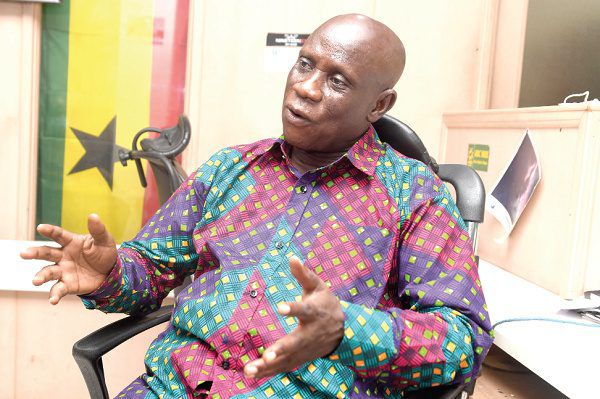Nana Obiri Boahen, a former Deputy General Secretary of the New Patriotic Party (NPP), has launched a scathing critique of the party’s post-election strategy following its unprecedented defeat in the 2024 general elections. He argues that the NPP’s current focus on internal elections, including the upcoming presidential primaries slated for January 2026, is premature and misguided. Boahen contends that the party should prioritize rebuilding its grassroots foundation by embarking on a robust membership drive and issuing party cards before engaging in internal contests for leadership positions. He believes this fundamental step is crucial for regaining public trust and electoral viability. Boahen’s criticism underscores a perceived disconnect between the party’s leadership and its base, suggesting a lack of introspection and a failure to learn from the factors that contributed to their electoral loss.
Central to Boahen’s argument is the assertion that the NPP’s current trajectory indicates a misplaced focus on individual ambitions rather than the collective good of the party. He observes that many party members are preoccupied with securing leadership roles instead of addressing the systemic issues that led to their defeat. This preoccupation, he argues, reflects a lack of seriousness about the party’s rebuilding process. Boahen emphasizes that the pursuit of personal ambition at this critical juncture undermines the party’s ability to effectively address its structural weaknesses and rebuild public trust. He posits that a genuine commitment to revitalizing the party would prioritize strengthening its grassroots foundation through membership drives and the establishment of a credible party register, rather than internal power struggles.
Boahen’s critique extends to the legitimacy of the impending internal elections, particularly given what he perceives as the absence of a reliable party register. He questions the validity of an electoral process without a clear understanding of the eligible voters and their affiliations. This raises concerns about the transparency and fairness of the internal elections and underscores the potential for further division within the party. The lack of a credible register, Boahen suggests, not only undermines the integrity of the electoral process but also casts doubt on the legitimacy of the eventual winners. This, in turn, could further weaken the party’s ability to present a united front in future elections.
Further emphasizing his point, Boahen highlights the apparent lack of enthusiasm for grassroots mobilization within the party. He contrasts this with the fervor surrounding the internal elections, further underscoring his belief that personal ambitions are overshadowing the crucial task of rebuilding the party’s base. He questions the rationale behind vying for leadership positions when the very foundation of the party – its membership – remains unclear and potentially unstable. Without a robust and verifiable membership base, Boahen argues, any leadership chosen through internal elections lacks a legitimate mandate and risks exacerbating existing divisions within the party.
The former Deputy General Secretary’s criticism comes as the NPP gears up for its presidential primaries, with several prominent figures vying for the nomination. Among the potential contenders are former Vice President Dr. Mahamudu Bawumia, former Member of Parliament for Assin Central Kennedy Agyapong, former Education Minister Dr. Yaw Osei Adutwum, Member of Parliament for Abetifi Bryan Acheampong, and former NPP General Secretary Kwabena Agyei Agyapong. This crowded field further highlights the internal competition that Boahen criticizes, suggesting that the focus on individual ambition could detract from the collective effort required to rebuild the party. The race for the NPP’s presidential nomination, therefore, serves as a microcosm of the larger issues that Boahen raises about the party’s current trajectory.
In essence, Nana Obiri Boahen’s criticism serves as a wake-up call for the NPP. He argues that the party’s focus should be on grassroots revitalization and structural reform, not internal power struggles. He believes that by prioritizing membership drives and establishing a credible party register, the NPP can lay a solid foundation for future electoral success. Ignoring these fundamental steps, he warns, risks further fragmentation and a prolonged period in opposition. His critique, therefore, offers a crucial perspective on the challenges facing the NPP as it attempts to navigate the aftermath of its 2024 electoral defeat and chart a course for future success. Whether the party heeds his warnings remains to be seen, but his concerns undoubtedly reflect anxieties shared by many within the NPP who are eager to see their party return to power.


